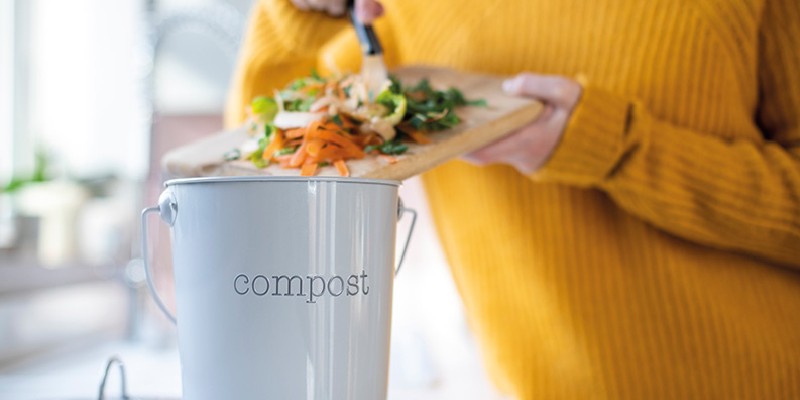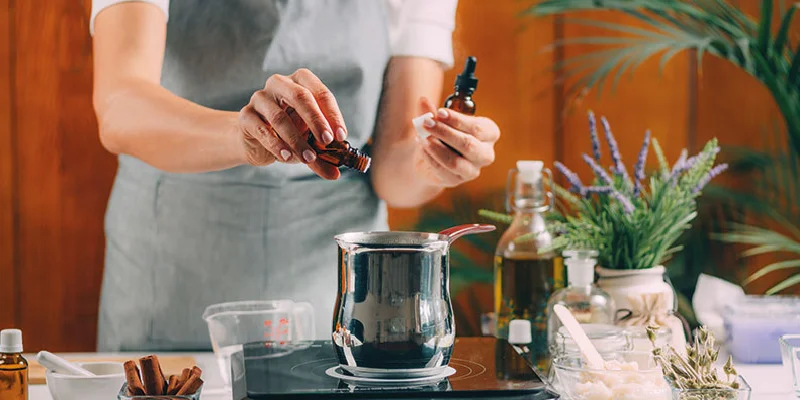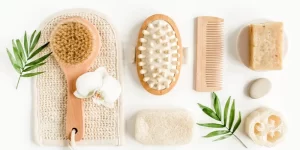No doubt we’ve all heard of the benefits of recycling at some point, even if we don’t fully understand the process or perhaps why it’s important. It is important to do our part for the earth: let’s dive into learning! In this article, you will learn what recycling is, how to separate recyclables, and what reuse is!
Why can’t we recycle at home?
Can we recycle at home? Not really. However, we do separate our waste and take it to places where it can be recycled. Recycling is the physico-chemical process where waste is turned into raw material that can be used to manufacture new products. So cool!
Even if you can’t recycle at home, you can “reuse” your waste pretty easily! You can reuse items, use them to create new objects, whether the objects are functional or decorative. For example, you can make an indoor vertical garden with medicinal or edible plants for self-sustainability.
Al though recycling occurs on an industrial level, there are two ways in which you can do it at home:
1. By turning cooking oil into soap through a simple chemical reaction.
2. By accelerating the decomposition of organic waste to makecompost for gardening. Isn’t that wonderful? Now, let’s see some benefits of recycling.
5 benefits of recycling
- By recycling your cooking oil to make biodegradable soaps, you canprevent it from reaching the ocean. A single liter of oil can pollute about 40,000 liters of water! And that’s not counting the damage it can do to ecosystems and plumbing. Plus, you’ll no longer use detergents that damage water and your skin.
- By composting organic waste, you cut your waste in half, and cut its environmental impact, too! At the same time, your plants will be happy, and your garden soil will be revived. You also help carbon sequestration in a natural way – another one of the many benefits of recycling kitchen waste!
- Separating waste prevents organic waste from contaminating inorganic waste, and vice versa. Thus, it allows materials to be ready to be used or moved. In addition, by separating waste correctly in your home, you avoid unpleasant smells from the trashcans.
- By handing in your glass at recycling points, you prevent more sand from being taken from the coast to make glass. At the same time, you help to prevent glass fragments from reaching the natural environment, where they can be dangerous to wildlife. Although it is an inert, i.e., non-polluting material, it takes 4,000 years to degrade!
- It is very important to separate and take metals to collection centers to allow their recycling at an industrial level. In this way, its extraction in nature, which causes so much damage to the planet, is reduced. Remember that mining destroys and pollutes rivers, and rivers always go to the sea. So, before you toss out an old battery or cellphone battery, remember the toll precious metals take on the earth, and recycle it!

How to practice the 3Rs at home
- Do not reuse too much oil. Filter it when you collect it. And if you don’t have the resources or time to process it, donate it.
- Find out about different types of composters or hire a composting service.Maybe your city even has a program with free or cost-effective composting bins.
- Take to a collection point: paper and cardboard, glass, metals, metals, and some plastics.
- Non-recyclable plastics should be reused.
- There are specializedcenters that receive more specific waste such as electronics, textiles, and other types of waste.
The benefits of recycling, reducing, and re-using
While there are certainly many benefits to recycling, much more is required to save the planet. As deep ecology tells us, we must change what creates the problem: it’s easier not to make a mess than to have to clean up! Reduce what you generate, reuse as much as you can, and allow materials to be reintegrated into the system. You have a lot to contribute. So, are you ready to start?
Bibliographical references
- Lee, C. (2023). Glass or plastic: which is better for the environment? British Broadcasting Corporation.
- Ministry for Ecological Transition and the Demographic Challenge. (s.f.). Glass: Why should it be managed properly?
- United Nations (2019). Unsustainable sand mining destroys rivers and seas..
- Sabanero, A. (2023). What are handmade soaps and what are their benefits? Formula Group.
- We Are All Recycling Channel (15 August 2019). Differences between recycling and reuse. [Video Archive]. Youtube.




